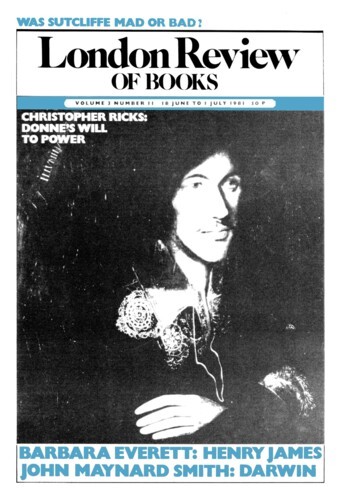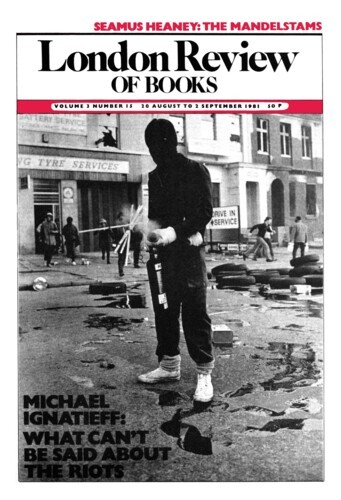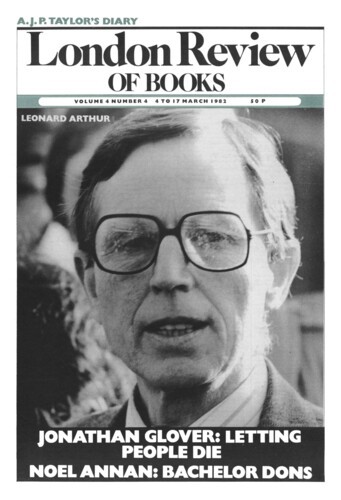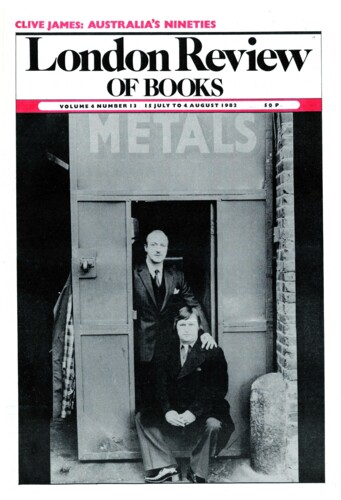Mad or bad?
Michael Ignatieff, 18 June 1981
During his summation at the Old Bailey trial of Peter Sutcliffe, Mr Justice Boreham felt called upon to remind the jury that they were there to judge Sutcliffe, not the flock of psychiatrists called to testify as to his mental condition. The jury could have been forgiven for believing that psychiatry, not Sutcliffe, was in the dock, for during the trial, the profession and its discourse were subjected to merciless inquisition. The jury’s verdict implied the professionally mortifying conclusion that the doctors had indeed been duped. Yet if Sutcliffe fooled the doctors, he also appears to have taken in the Attorney-General, who accepted his plea of diminished responsibility.




